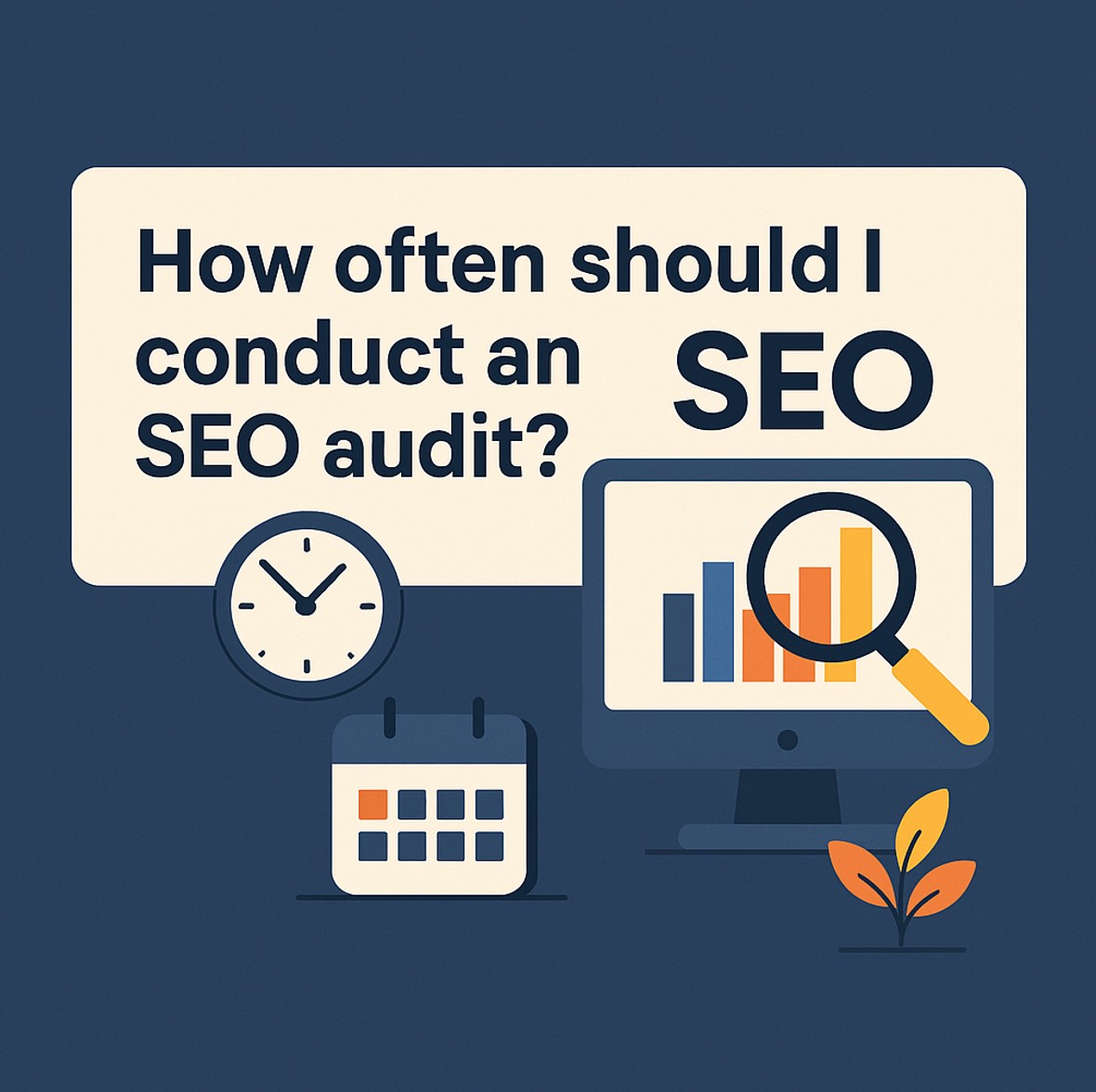Search engine algorithms are constantly evolving, and your competitors aren’t standing still either. To keep your website ranking and performing well, you need regular health checks in the form of SEO audits. But how often is “regular”?
In this guide, we’ll cover:
What to know about SEO timelines and effectiveness
How often you should get an SEO audit
What the SEO audit cycle looks like
When to run different types of audits
Warning signs that your site may need one right now
How Often Should You Get an SEO Audit for Your Website?
Most experts agree: conduct a full SEO audit every 3 to 6 months. This cadence ensures you’re catching technical issues early, adapting to Google updates, and staying ahead of competitors.
However, audit frequency can vary depending on:
- Website size and complexity
- Frequency of content and design updates
- Technical architecture and CMS
- Business goals (e.g., eCommerce vs. blog)
If your site drives sales, leads, or regular traffic, a quarterly audit is ideal. If you’ve made major site changes (migration, redesign, or adding new pages), an audit should follow immediately.
Fix SEO Issues Before They Cost You Traffic
Signs That You Need an SEO Audit Right Now (Don’t Wait)
Even with a regular audit schedule, certain red flags mean you should check your SEO immediately. Ignoring them can lead to traffic loss, lower rankings, and poor user experience.
1. Sudden Traffic Drops
If your organic traffic takes an unexpected dive, something may be wrong. Check Google Analytics and Search Console for possible causes like penalties, lost backlinks, or algorithm updates.
2. Ranking Fluctuations
A drop in keyword rankings could mean your competitors have stepped up their SEO, or Google’s latest update has affected your site. An SEO audit in 2025 will help diagnose the issue.
3. Site Speed & Core Web Vitals Issues
If your site loads slowly or fails Core Web Vitals assessments, Google may push you down in rankings. A technical SEO audit will uncover speed bottlenecks and performance issues.
4. Indexing or Crawl Errors
Pages not appearing in search results? Errors in Google Search Console like “Crawled – currently not indexed” or “Blocked by robots.txt” indicate that search engines are struggling to access your content.
5. Recent Website Changes
After a redesign, migration, or major content update, an SEO audit ensures everything is working as expected. Redirects, internal linking, and structured data must be reviewed to prevent ranking losses.
6. Increase in Spammy Backlinks
A sudden influx of low-quality or toxic backlinks can harm your site’s authority. Running an off-page SEO audit helps identify and disavow harmful links before they impact rankings.
If any of these issues sound familiar, an SEO audit should be your next step. Fixing problems early prevents long-term damage to your search performance.
Different Types of SEO Audits & When to Conduct Them
A full SEO audit covers many moving parts, but sometimes it’s more effective to run targeted audits. Here are the main types:
| Type of Audit | Best Time to Run It |
|---|---|
| Technical SEO Audit | Every 3–6 months or after major changes |
| Content Audit | Every 6–12 months; especially after publishing lots of blogs |
| Backlink Profile Audit | Quarterly or if you see ranking volatility |
| On-Page SEO Audit | After major content uploads or design updates |
| Website Traffic Loss Audit | Immediately after noticeable drops in search traffic |
Doing a full SEO audit twice a year and supplementary audits as needed ensures long-term visibility and growth.
What Is the SEO Audit Cycle and Why It Matters?
The SEO audit cycle refers to the recurring process of auditing, fixing, monitoring, and optimising your website’s SEO health. It looks like this:
- Audit: Identify errors, opportunities, and issues.
- Fix: Implement the changes and optimisations needed.
- Monitor: Use tools like Google Search Console and GA4 to track progress.
- Re-Audit: Recheck your SEO performance and refine the strategy.
This cyclical process ensures your SEO is proactive, not reactive—giving you a competitive edge and preventing unexpected losses in visibility or traffic.
What Is the Ideal Length of Time to See SEO Results?
SEO is not a one-and-done project. It requires consistency. While technical fixes may show impact within a few weeks, the ideal length for SEO to deliver real results is 3–6 months.
Key timelines to remember:
- 3 months: Early signs of keyword improvement
- 6 months: Stronger domain visibility and traffic
- 12+ months: Compounding ROI from ongoing optimisation and backlinks
Regular audits support this long-term success by keeping your strategy aligned with Google’s evolving algorithms.
How Often Should SEO Be Done as Part of a Digital Strategy?
SEO is an ongoing process, not just a quarterly check-in. While audits are done every few months, active SEO work—like updating content, building links, fixing technical issues, and monitoring rankings—should happen monthly, if not weekly.
Consider SEO as part of your website’s ongoing maintenance plan, just like software updates or data backups.
Final Thoughts: Audit Frequently, Optimise Continuously
If you’re asking, “How often should I get an SEO audit?” — the answer depends on how important your website is to your business. For high-traffic, lead-generating websites, a quarterly SEO audit plus monthly monitoring is a smart strategy.
Don’t wait until rankings tank or sales drop. Stay ahead with regular checks, and treat SEO audits as part of your website’s growth cycle.
Need Expert Help?
If you’d rather have professionals handle it, check out our SEO Audit Services to get a full, actionable report with expert recommendations.




